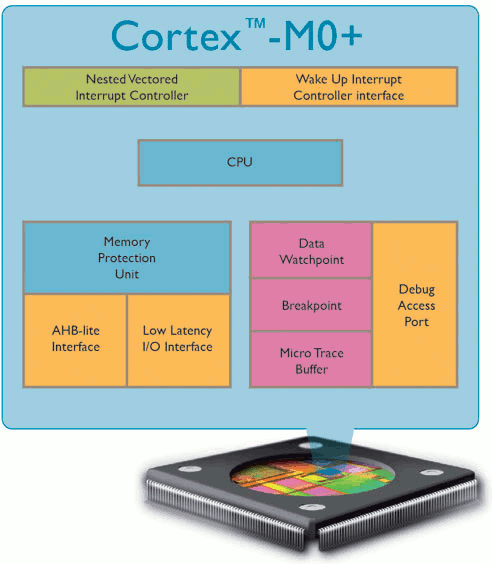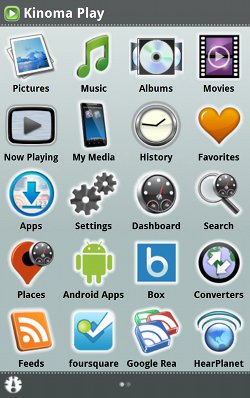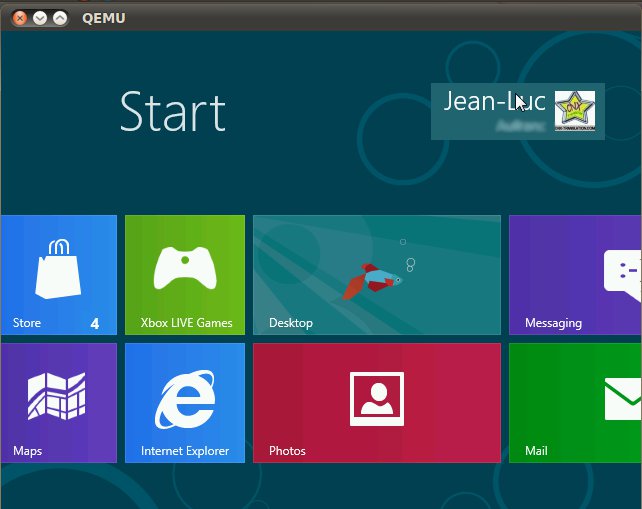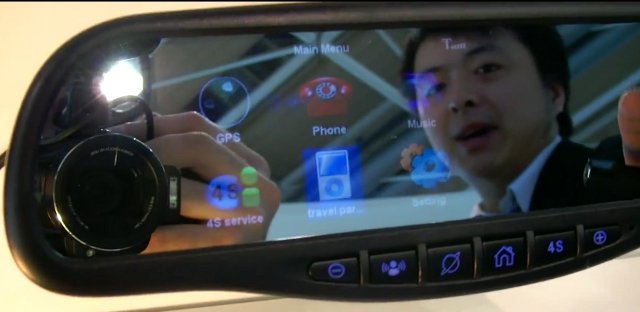Marcello Lioy, Director engineering at Qualcomm Innovation Center, talks about AllJoyn open source project at then Android Builder Summit in February 2012: Description of AllJoyn project: AllJoyn is a peer-to-peer technology that enables ad hoc, proximity-based, device-to-device communication without the use of an intermediary server. True peer-to-peer communications without the traditional barriers Simple device and service discovery Security framework for authenticated and encrypted communications per application/service Managed networking and message routing Object-oriented programming model Optimized for the mobile embedded environment Low latency Header compression Reliable and unreliable transport Point-to-multipoint communications Potential applications of the technology include Multi-player gaming Social media sharing Multi-user productivity tools AllJoyn is part of Qualcomm Android development tools. I could not find the presentation slides for this particular talk.
ARM Announces ARM Cortex-M0+ Core to Power the Internet of Things
ARM has just unveiled the ARM Cortex-M0+ 32-bit processor optimized to deliver ultra low-power and low-cost MCUs to power the ‘Internet of Things‘ by controlling connected intelligent sensors and smart control systems in a broad range of applications including home appliances, white goods, medical monitoring, metering, lighting and power and motor control devices. ARM claims the Cortex-M0+ consumes just 9µA/MHz on a low-cost 90nm LP process, around one third of the energy of any 8- or 16-bit processor available today, while delivering significantly higher performance (1.77 CoreMark/MHz). Beside the low power consumption, the main advantage of the Cortex-Mo+ over 8-bit and 16-bit MCUs , is that it can provide low power wireless connectivity to a variety of embedded systems such as wireless sensors. The new processor is based on Cortex-M0 processor but has been redesigned to include a few new features such as: Single-cycle IO to speed access to GPIO […]
Bump In Host on Android – IPv4 to IPv6 Translation – Android Builder Summit
Yonghui Wang, representative of China Mobile to the Linux Foundation, gives a presentation about BIH (Bump in the Host) protocol at the Android Builder Summit in February 2012. Abstract: BIH or Bump-in-the-host realizes a host-based IPv4 to IPv6 protocol translation mechanism that allows a class of IPv4-only applications that work through NATs to communicate with IPv6-only peers on Android. The host on which applications are running may be connected to IPv6-only or dual-stack access networks. BIH hides IPv6 and makes the IPv4-only applications think they are talking with IPv4 peers by local synthesis of IPv4 addresses. China Mobile has released an open source implementation of the protocol. The presentation slides has not available for this talk.
Marvell Releases Kinoma Play for Android and Kinoma Create SDK
Marvell has just announced the availability of the preview release of Kinoma Play for Android which includes a suite of 50 apps enabling digital media, social networking, location, and search. It’s somewhat surprising that a silicon vendor releases a processor agnostic software for Android, but here’s the reasoning behind it: “Marvell is investing in our Kinoma software platform because we understand the importance of great software to the success of our customers. Our vision of the Connected Lifestyle guides our product development. Kinoma Play truly shows the power of that Connected Lifestyle,” said Weili Dai, Co-Founder of Marvell. “I believe our customers can now build on Kinoma to bring increased value to their own products. Android is just the first stop. We’re working to bring Kinoma to additional Marvell-powered devices.” Kinoma Play Kinoma Play includes 5 dashboard: Play shows near real-time information from every Kinoma app with news, social networks, […]
Command Line Methods to Completly Delete a Hard Drive in Linux
Here are 2 methods to completly dlete the content of an hard drive with dd and shred commands. With those methods you won’t be able to recover the data. This can be useful in case you want to sell, throw away your hard drive / computer or have doubtful activities. If the partitions you want to delete are system (boot) partitions you’ll need to start your system with a live CD / USB such as SystemRescueCD or GParted. Finding the location of a drive or partition In order to know the exact path for your drive, you can use the fdisk command as root or sudoer: # fdisk -l Disk /dev/sda: 1887.4 GB, 1887436800000 bytes 255 heads, 63 sectors/track, 229467 cylinders Units = cylinders of 16065 * 512 = 8225280 bytes Device Boot Start End Blocks Id System /dev/sda1 1 25 200781 83 Linux /dev/sda2 26 229335 1841932575 83 Linux […]
Cross-compiling FreeRDP Windows Remote Desktop Client for ARM Linux (in Debian/Ubuntu)
Last month, I wrote the instructions to Cross-compile VMWare View for ARM Linux as I intended to “run” Windows 8 in an ARM client (most likely the Raspberry Pi) via PCoIP. However, the procedure to do so seems slightly complicated and requires to purchase a specific VMWare server software (VMware vSphere 5) or download a free trial. The good news is that there are other options such as VNC or RDP (Remote Desktop protocol) and Remmina, a Remote Connection client is available for Linux. As nothing is ever simple, another issue occured: if you are using a stable release of Linux (e.g. Debian Squeeze, Ubuntu 11.10) they come with older version of Remmina and either the connection is successful but the display is garbled (Version 0.7.x) either it crashes when connecting to Windows 8 via RDP (Version 0.8.x). The latest version (Remmina 1.0.0) fixes the problem and is available in […]
Shenzhen Wabook EPC1029 ARM Netbook Runs Android 2.3 / 4.0
Shenzhen Wabook Technology, a manufacturer with a factory based in Zhuhai, China, showcases their Wabook Netbook at Cebit 2012. The Wabook EPC1029 is a netbook running Android 2.3 (upgradable to Android 4.0) on a Rockchip RK2918 (ARM Cortex A8) @ 1.0 GHz. The device features a 10.1″ TFT LED display (16:9 aspect ratio) with a resolution of 1024×600, 3 USB host ports, Ethernet. No other technical specs are available yet. Only Android is available, but it might be possible to hack Ubuntu or another distro to run on it. You can watch the video below by Charbax of armdevices.net to see the device. Don’t worry pink is not the only color as white and black are also available. The price for 1,000 pieces (MOQ) is 93 USD and it takes around 25-30 days to get your order. They have already sold tens of thousands to a company in France. With […]
Huawei M2M Solutions: Android Rear-View Mirror, Smart Grid and more
Huawei is exhibiting their Machine to Machine (M2M) solutions at Cebit 2012 until March 10, 2012. They are showcasing Smart Meter solutions with home energy gateways, smart gas meters, smart electric meters, in-home displays.. all communicating via Zigbee. Their solution is currently being implement in the UK market. They are also exhibiting diverse modules (mainly based on Freescale i.MX5 processor) featuring Huawei 3G technology that could be used in tablets among other things. But the thing is really found interesting was their M2M solutions for the auto industry especially the Android car rear-view mirror where you can have the left half of the rear-view mirror displaying a menu so that you can access apps such as GPS maps, control your music or your phone and see information about your car. Here are some details above this rear-view mirror: Samsung SP5V210 Cortex A8 Processor 4.3″ TFT capacitive touchscreen – Resolution: 800×480 […]










